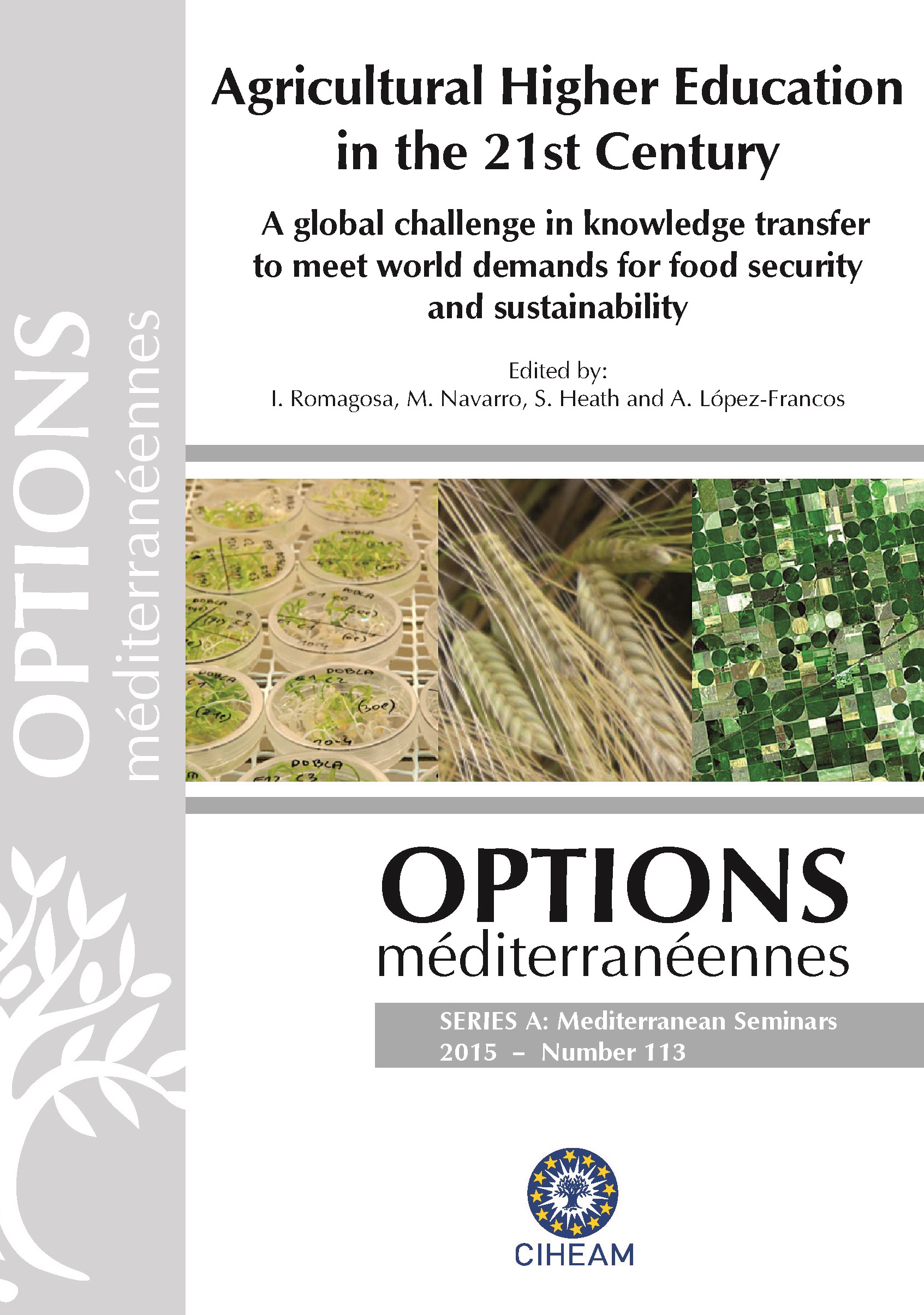| Article précédent | p. 121-125 | Article suivant |
Recognition of traditional knowledge and innovative developments in agricultural higher education
The World population continues to grow at about 1.5% a year. The projected 7 billion for last year were reached and the UN statistics are estimating 8 billion for 2020. Nowadays contrary to the advanced agriculture and the extensive use of agrochemicals more than 40% of the crop productivity is lost due to the competition with pests and pathogens. Additional loss is attributed to the postharvest period. This could reach a very high figure in the developing countries due to the lack of advanced storage facilities. The challenge is here, because we have to double our food production on less per capita land, with less water, and under non adequate environmental conditions. Today one can realize in the northern, developed countries that the societies of the farmers are aging. Les as less young people are interested in to learn agronomy. This is an alarming issue in the OECD countries, where agricultural knowledge are advanced, but its transfer far behind and cannot attract the new generations. This raises concerns about communications, and a gap are existing in understanding between the agriculture and the society as a whole. In the developing world especially in the Mediterrean countries more classical agricultural educations are needed with an emphasis on the advanced techniques, too. By studying the development of the farming systems throughout the history one can realize that how big changes had happened. These rapid accumulations are exponentially grown along with the enormous discoveries in natural sciences. Those discoveries are completely reorganized and revolutionized the farming systems, and increased their productivities. This also had an impact on the agricultural higher education. All novel techniques have to be incorporated into the agricultural curricula, not forgetting teaching the classical agronomy and transfer a holistic approach in the education.
- [ Afficher ]
- [ Télécharger ]
- [ Exporter la citation ]
Vous pouvez télécharger la citation au format :
- [ Imprimer ]
-
Mots-clés
DURABILITE, ENSEIGNEMENT AGRICOLE, ENSEIGNEMENT SUPERIEUR, SECURITE ALIMENTAIRECiter cet article
Balázs E. Recognition of traditional knowledge and innovative developments in agricultural higher education. In : Romagosa I. (ed.), Navarro M. (ed.), Heath S. (ed.), López-Francos A. (ed.). Agricultural higher education in the 21st century : a global challenge in knowledge transfer to meet world demands for food security and sustainability . Zaragoza : CIHEAM, 2015. p. 121-125. (Options Méditerranéennes : Série A. Séminaires Méditerranéens; n. 113). International Conference : Agricultural Higher Education in the 21st Century, 2015/06/15-17, Zaragoza (Spain). http://om.ciheam.org/om/pdf/a113/00007605.pdf



